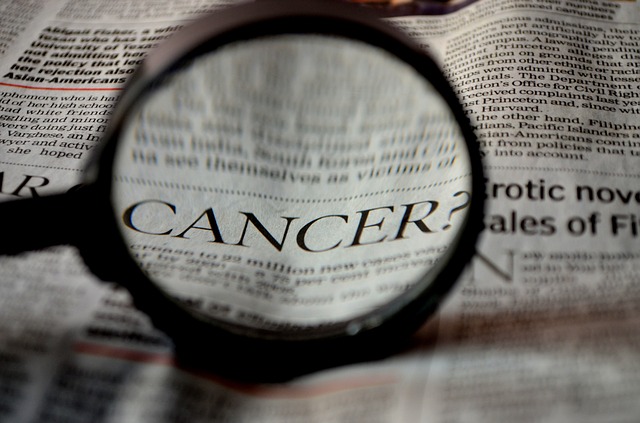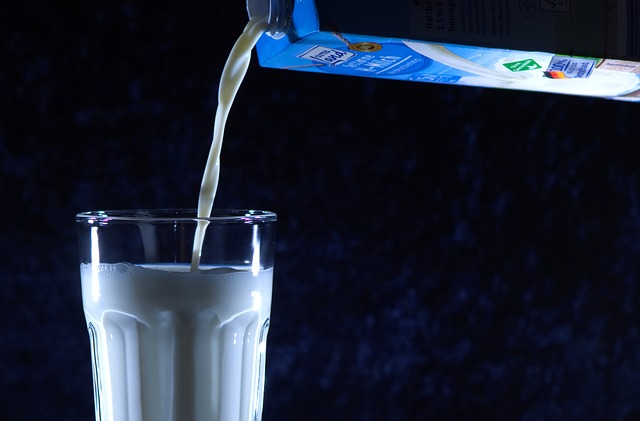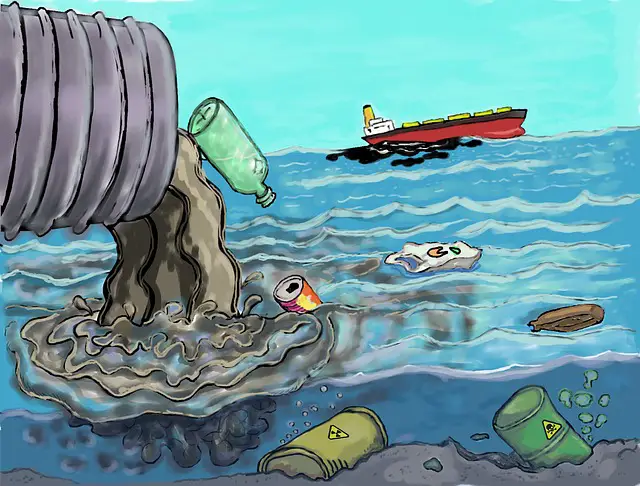Does eating to many animal products make us sick? We know that it is healthy to eat more fruits and vegetables and less meat. However, meat is still considered an integral part of a healthy, balanced diet. And what about milk and eggs and fish? Milk is healthy and makes strong bones. Eggs contain extra protein and help to build muscles. Fish contains valuable Omega 3 fatty acids. That’s what you hear every day in the media and in advertising. But what if animal products do not make us healthier and stronger, but instead make us sick and promote diseases?
What do you think are the most frequent causes of death in the western industrialized countries? It’s not traffic accidents or old age as one might think. No, in the first place are cardiovascular diseases (heart attack, stroke), with almost half of all victims. Cancer (lung cancer, colon cancer, prostate cancer, breast cancer) comes second. Numerous studies have shown that these diseases are inextricably linked to the consumption of animal products.

Red and Processed Meats Have Been Classified as Carcinogenic by the WHO
The health damage caused by meat has been revealed by countless scientific studies. In 2015, WHO experts (World Health Organization) evaluated over 800 scientific studies on meat. As a result, they have classified processed meat as “carcinogenic (stage 1)” and red meat as “probably carcinogenic (stage 2)”.
Just to clarify red meat is called all muscle tissue of mammals, i.e. beef, veal, pork, lamb and mutton. Processed meat is any product in which meat has been preserved or altered in taste. This includes everything that has been processed by salting, curing, fermenting or smoking. This means sausages, salami, ham and co. are on the same carcinogenic stage as asbestos, heavy metals and arsenic (qualitatively but not quantitatively).
Many Deaths Due to Meat Consumption
In Germany, 34,000 people die each year from eating processed meat. And the consumption of red meat leads to even 50,000 deaths a year.
The catastrophic health consequences of consuming milk, cheese and other dairy products are far less known. But they’re probably even more serious than the consequences of meat consumption.
A large number of studies have shown that there is a link between milk consumption and a variety of serious diseases. These include breast cancer, prostate cancer, Alzheimer’s disease, multiple sclerosis, Parkinson’s disease, diabetes type I, diabetes type II, ovarian cancer and osteoporosis.

Milk Promotes Breast and Prostate Cancer
Worldwide breast cancer incidence figures published by WHO correlate with the level of milk consumption in countries. The “EUBST Human Report”, commissioned by the EU, examined the effects of milk consumption on human health. It concluded that the growth of malignant tumours, especially breast and prostate cancer, can be promoted by the consumption of milk.
Animal protein, especially from milk, is a very potent promoter of cancer growth. This has been clearly demonstrated in studies. Professor Dr. T. Colin Campbell investigated this in one of the largest studies ever conducted, the China Study. He noted: “Casein, which accounts for 87% of the protein contained in cow’s milk, promoted all stages of cancer growth. “

Milk is a Hormone Cocktail.
The fact that milk stimulates cancer growth so strongly is mainly due to the fact that milk contains a myriad of different hormones (growth hormones, pregnancy hormones, sexual hormones, etc.). Because of their health risks, many of these hormones are otherwise only available in pharmacies with a doctor’s prescription.
A cow produces milk to let her calf grow to a multiple of its weight within a very short time. What happens when this hormone cocktail meets an already grown-up human? If we can’t grow in height anymore other things will grow. Therefore, the consumption of milk promotes obesity, acne and many chronic, often fatal diseases such as cancer.
Osteoporosis Due to Milk
Osteoporosis (bone loss) is also most likely linked to milk consumption. This is because osteoporosis rates are highest in the countries that drink the most milk and lowest in the countries that drink the least milk. There are enough studies that show that people who drink a lot of milk have the most broken bones and a higher mortality rate.

Carcinogenic Environmental Toxins (Dioxin and PCP) in Meat, Milk, Eggs and Fish
But hormones are not the only problem with dairy products. A 2007 French study revealed that milk and fish are the most important sources of toxins. These toxins are dioxins, furans and dioxin-like PCBs.
According to studies by the Swiss Federal Office of Public Health (FOPH), 92% of the toxic and carcinogenic substances in food originate from animal products. Of these, milk and milk products are the largest suppliers of these toxins, accounting for 54%!
The German Federal Environment Agency also stated in a publication from 2014: “More than 90% of the carcinogenic environmental toxins dioxin and PCP are ingested by humans through food of animal origin such as milk, meat, fish and eggs!”
Conclusion
So let us come back to the initial question: Does eating to many animal products make us sick? That must be answered quite clearly with yes. Because many studies have shown that the consumption of animal products is inextricably linked to the most common diseases of civilisation. Heart diseases, diabetes type 2, many forms of cancer, stroke, high blood pressure, dementia and osteoporosis are caused or at least promoted by the consumption of animal products.
But there is also good news: many of these diseases can be treated and some even be reversed by switching to a plant-based diet. This has also been proven in numerous studies.
Further Information
For all those who want more information: I recommend to you these two documentations. Because they explain the above-mentioned health issues and the conducted studies in detail.
- Forks over Knives (Watch on Netflix)
- What the Health (Watch on Youtube)
Sources:
Cancer Risk:
https://www.iarc.fr/wp-content/uploads/2018/07/pr240_E.pdf
https://www.pcrm.org/health-topics/cancer
https://www.pcrm.org/good-nutrition/nutrition-information/processed-meat
https://www.wcrf.org/dietandcancer/recommendations/limit-red-processed-meat
Reasons of Death:
https://www.destatis.de/DE/Themen/Gesellschaft-Umwelt/Gesundheit/Todesursachen/_inhalt.html
Health Risks of Milk:
https://www.pcrm.org/good-nutrition/nutrition-information/health-concerns-about-dairy
https://www.ncbi.nlm.nih.gov/pubmed/24247817
https://www.pcrm.org/news/health-nutrition/new-review-finds-dairy-products-linked-prostate-cancer
Carcinogenic Environmental Toxins:
https://www.veganbook.info/wp-content/uploads/2017/06/131008_PCB_Hintergrundinformationen_d1.pdf
https://efsa.onlinelibrary.wiley.com/doi/epdf/10.2903/j.efsa.2010.1385
Health Improvement Through a Plant Based Diet:
https://www.pcrm.org/good-nutrition/plant-based-diets
https://www.provegan.info/fileadmin/pdf/broschuere-vegan.pdf
Schaut euch auch unsere anderen Artikel zum Thema “Warum Vegan?” an.





